How To Treat Inflammaging and Skin: The Sneaky Culprit That Can Make You Look Older
There's a new buzz-worthy skincare term floating around TikTok and other social media platforms that many of us are finding ourselves relating to: Inflammaging. This term is a cross between inflammation and aging, and can create beauty bothers from head to toe as many suffer from aches and pain, fatigue and more. And on top of all of that, inflammaging can present itself on our face and skin, leading to redness flare-ups, breakouts and just overall unhappy skin. If you're wondering how to tackle your inflammaging when it comes to your skin, we tapped top dermatologists and estheticians for their best tips, insights and products. Read on for all you need to know!
Related: Inflammaging Could Be the Cause of Your Fatigue — How One Woman Finally Found Relief
What is inflammaging?
As mentioned above, inflammaging is the combination of inflammation in relation to aging. And for skin specifically, it refers to "the circumstance of chronic inflammation creating dullness, fine lines and wrinkles and/or irritation in skin," says medical aesthetician Cassandra Bankson.
If you've been struggling with skin concerns that have seem to come out of the blue as you age, you're not alone — and inflammaging could be the cause. "It has currently been trending as a conversational item and search term since it helps to explain a phenomenon so many women have been going through but struggled to explain," notes Bankson. "The term especially took off on TikTok and spread to other social media platforms soon after."
What causes inflammaging within our skin?
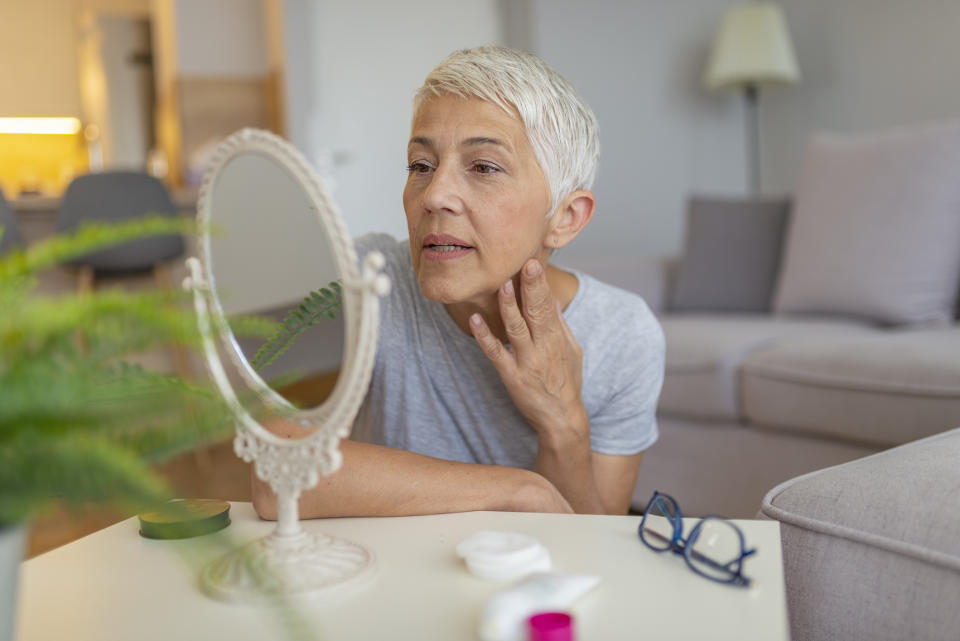
Unfortunately, inflammaging can start long before it starts to appear on our skin, so it can seem to come out of nowhere once it finally emerges externally. "It can be hard to tell when inflammation is starting, since this usually happens on a cellular level and deep within the skin and body before it shows up on the surface of the skin. On the inside of the body, cortisol levels, the stress hormone, may be rising, and cellular apoptosis, or programmed cell death, may be sped up more than usual," explains Bankson. "Usually, this must happen for an extended period of time before we start to see it on the skin."
On top of stress levels rising, aging in itself can contribute to more inflammation within our body and skin. And, if you suffer from autoimmune disorders or inflammatory conditions, you may be at greater risk for inflammaging. "People with inflammatory skin conditions or autoimmune conditions, such as psoriasis or eczema, or other related conditions like arthritis or lupus, may be at a greater risk and have a harder time treating inflammaging," says Bankson.
Related: “I’m a Dermatologist and Here’s Why *This* Is the Best Makeup for Eczema-Prone Skin.”
How does inflammaging show up on our skin?
There are many different ways inflammaging can present itself within our skin. When thinking of inflammation in general, you may picture redness, dryness and irritability. Put simply, this is also how it can show up on our skin: red, dry and irritated skin, among many other skin concerns.
"Once it [inflammaging] starts to show on the skin, it can be identified by a few factors: redness or irritation, reactive skin that is prone to dryness or itchiness, skin that feels like tissue paper instead of being strong and resilient, skin that seems burnt or damaged, especially if you find your skin more sensitive to sun exposure even with SPF/UV protection, fine lines or wrinkles, uneven skin tone and texture and hyperpigmentation or pigmentation patches that are taking longer than normal to resolve," says Bankson.
Further, inflammaging can greatly impact our collagen levels and skin elasticity. "This persistent inflammation can have significant effects on our skin, accelerating the breakdown of collagen and elastin, which are essential for maintaining skin's firmness and elasticity," says Hannah Kopelman, MD, dermatologist at Kopelman Aesthetic Surgery. "As a result, inflammaging can lead to increased wrinkles, loss of skin tone and other signs of aging such as hyperpigmentation and dryness."
How to prevent inflammaging
Thankfully, it is possible to ward off inflammaging and the havoc in can wreak on our skin and body. With a few lifestyle changes, you can prevent inflammaging from starting in the first place. Here, a few simple strategies.
1. Eat antioxidant-rich foods to prevent inflammaging
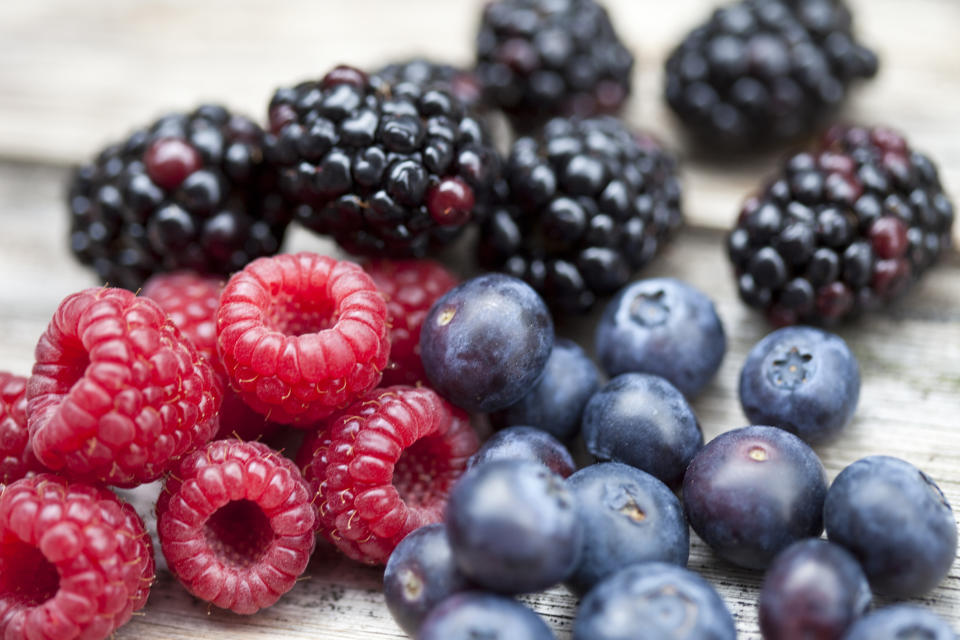
Antioxidants can do wonders when it comes to treating inflammation and inflammaging. Incorporating these superheroes into your diet is an easy way you can protect your skin. Foods like blueberries, blackberries, avocados, apples, green tea and olive oil are antioxidant-rich, and can be used in many different recipes and meals.
2. Cut down on alcohol to prevent inflammaging
Non-alcoholic beverages or non-alcoholic wine are best when trying to prevent or tackle inflammaging. "Alcohol is a huge favor in overall inflammation in the body, liver health and yes — inflammaging in skin," says Bankson.
3. Discover EGCG to prevent inflammaging
EGCG, or epigallocatechin 3 gallate, can help calm inflammation, says Bankson. And it can be found in green tea, matcha or various other skincare products.
4. Focus on protecting and repairing your skin barrier to prevent inflammaging
Creating a strong skin barrier is crucial for many different reasons, from controlling excess oil or dryness to managing breakouts, and it's also essential when it comes to preventing inflammaging. Bankson recommends "strengthening your skin barrier with ingredients like ceramides."
The best and worst ingredients for inflammaging
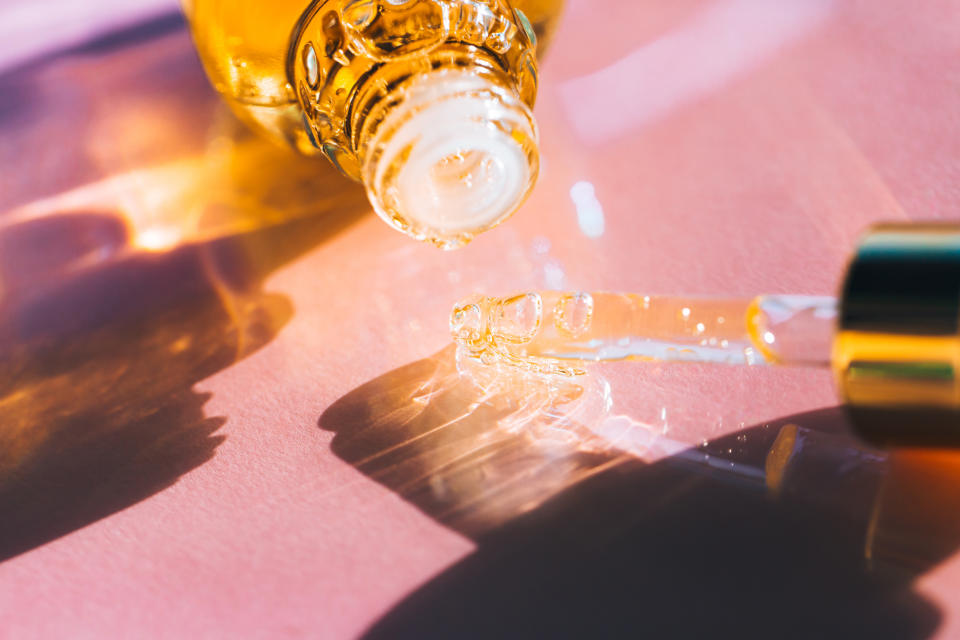
What you do — and don't — put on your skin greatly matters when it comes to inflammaging. Certain ingredients can trigger inflammed skin, just like how certain ingredients can help soothe inflammed skin. Bankson and Dr. Kopelman recommend the following skincare ingredients to help with inflammaging:
Anthocyanins: This is an antioxidant that comes from blueberries and blackberries.
Vitamin C: Another antioxidant that's also called ascorbic acid, 3-o-ethyl ascorbic acid or ascorbyl glucoside. This vitamin does everything from brightening skin to hydrating and spurring collagen production.
CoQ10: Also called ubiquinone or ubiquinol-10, this nutrient is found naturally in the body, as well as in skincare products.
Ceramides: "To replenish and strengthen your skin barrier," says Bankson.
Niacinamide: "This form of vitamin B3 is known for its anti-inflammatory properties and ability to improve skin barrier function, reduce redness and even out skin tone," says Dr. Kopelman.
Retinoids: "These vitamin A derivatives promote cell turnover and collagen production, helping to reduce the appearance of wrinkles and improve skin texture," says Dr. Kopelman.
Overall hydrating ingredients: Hyaluronic acid and glycerin are two examples of hydrating ingredients inflamed skin will thank you for.
Peptides: Dr. Kopelman says, "these small proteins can help stimulate collagen production and improve skin firmness and elasticity."
Omega-3 fatty acids: "Found in ingredients like flaxseed oil and fish oil, omega-3s have anti-inflammatory properties that can benefit the skin," explains Dr. Kopelman.
Ingredients to avoid for inflammaging
The below is a list of things to avoid in skin care as they can be harsh and can accelerate inflammaging.
Pro-oxidative ingredients
Stripping ingredients (such as physical scrubs)
Potent fragrances
Highly-concentrated plant oils
Anything your skin typically has a bad reaction to
The 17 best skincare products for inflammaging
Keep scrolling to see Bankson's and Dr. Kopelman's favorite skincare heroes for tackling inflammaging in the skin.
Best cleansers for inflammaging
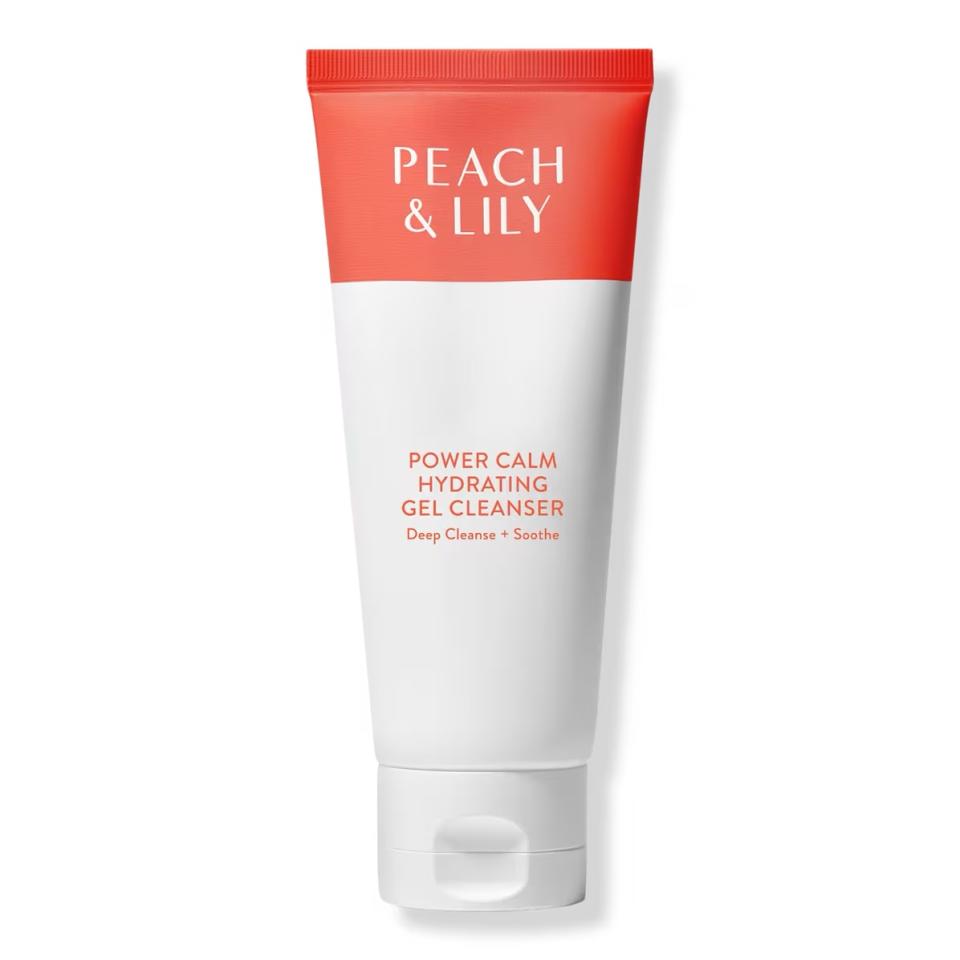
Peach & Lily Power Calm Hydrating Gel Cleanser
Bankson recommends looking for "gentle, non-stripping, antioxidant-rich cleansers," and this one, recommended by her, checks those boxes.
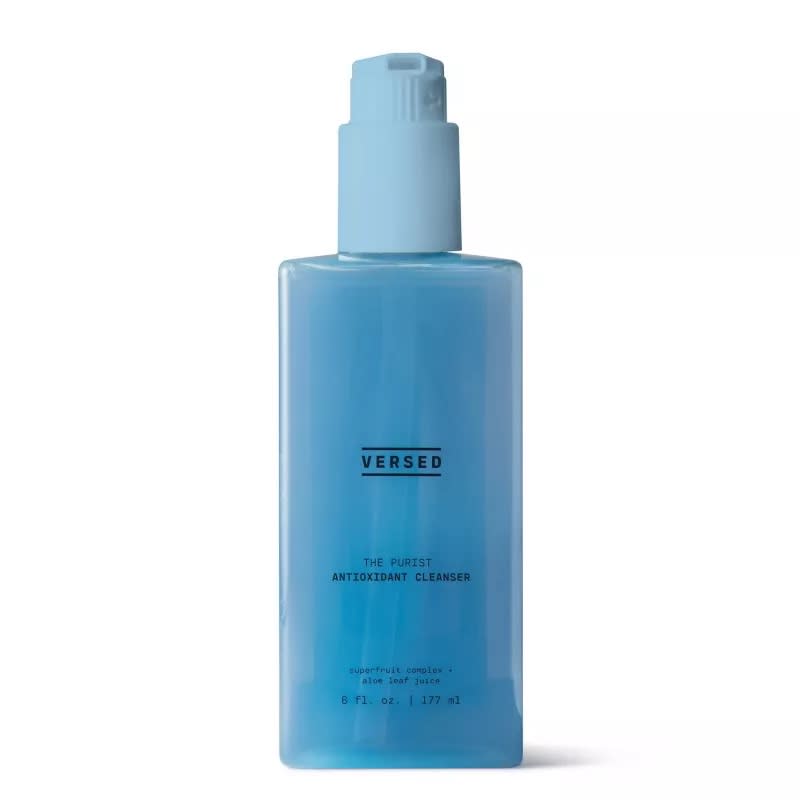
Versed The Purist Antioxidant Face Cleanser
Also recommended by Bankson, this cleanser is full of antioxidants and costs just $10 — an absolute steal.
Best toners for inflammaging
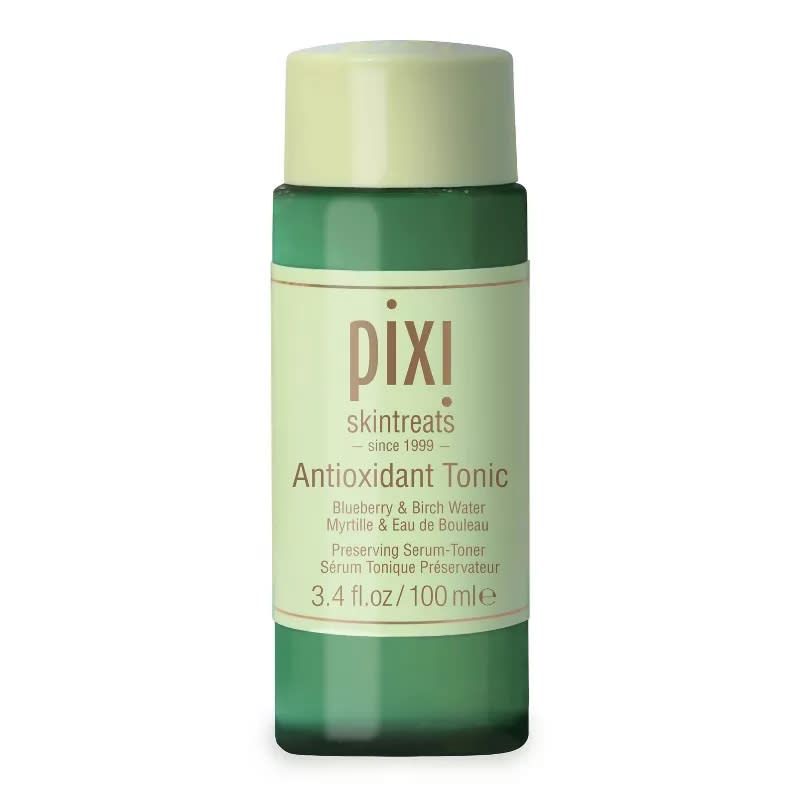
Pixi by Petra Antioxidant Facial Treatment Tonic
This leave-on treatment "helps hydrate skin and provide antioxidant support to replenish and rehydrate skin, and help other ingredients penetrate skin better," says Bankson.
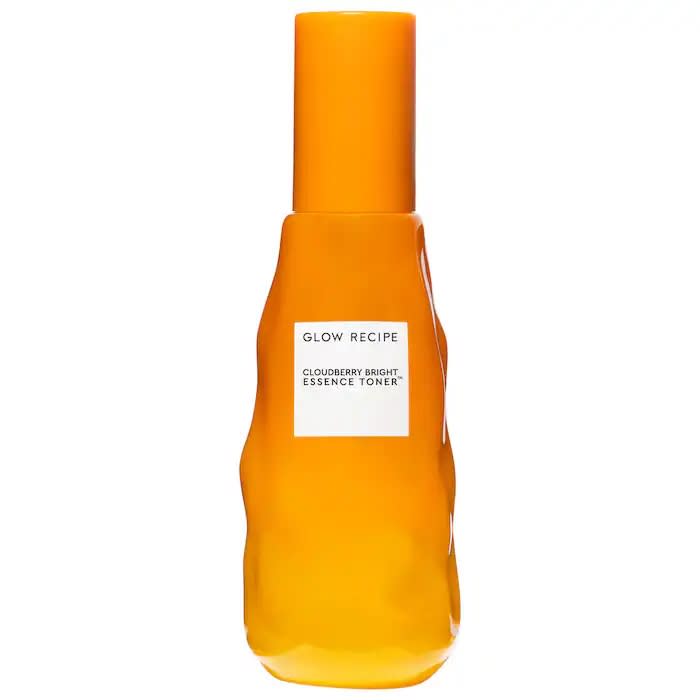
Glow Recipe Cloudberry Bright Essence Toner
Bankson likes this toner because it's made with "with antioxidants like CoQ10 for fighting free radical damage and works under sunscreen or makeup while also providing hydration — it also has rice water to smooth out texture." A true multi-tasking hero.
Best vitamin C for inflammaging
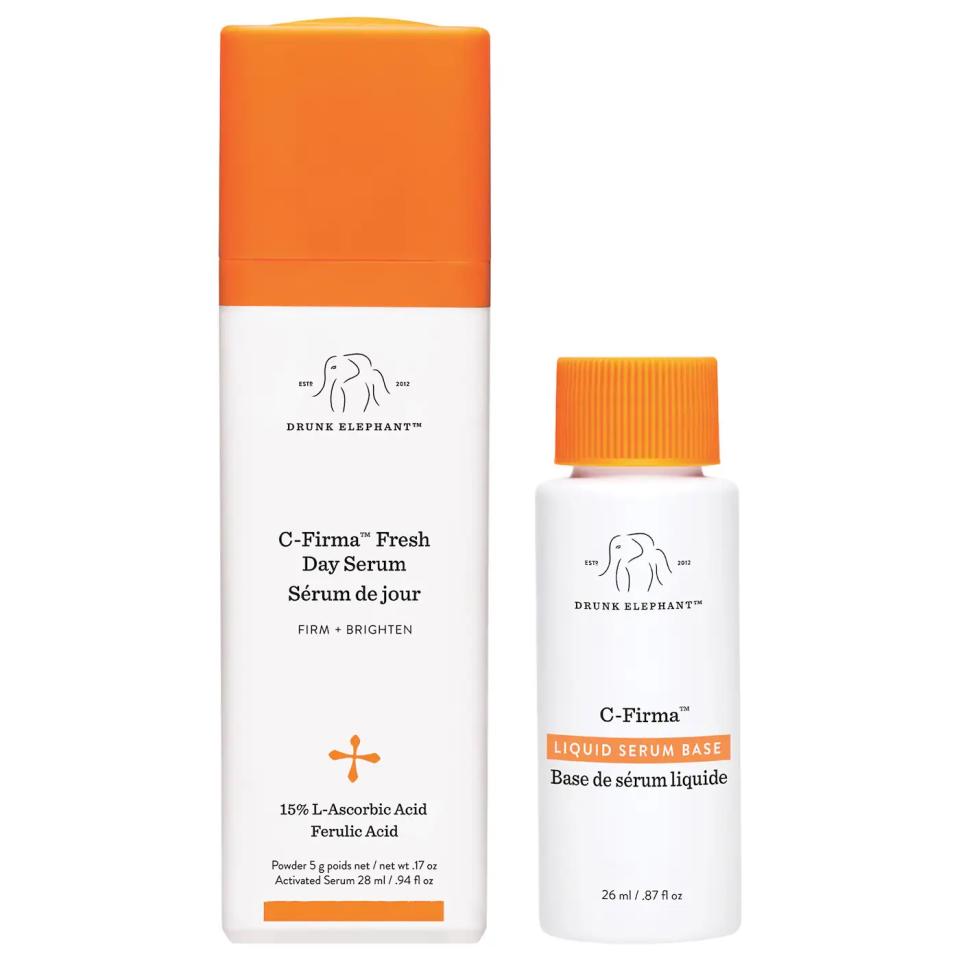
Drunk Elephant C-Firma Day Serum
One of Dr. Kopelman's picks, this brightening serum is "packed with antioxidants to fight inflammation and oxidative stress."
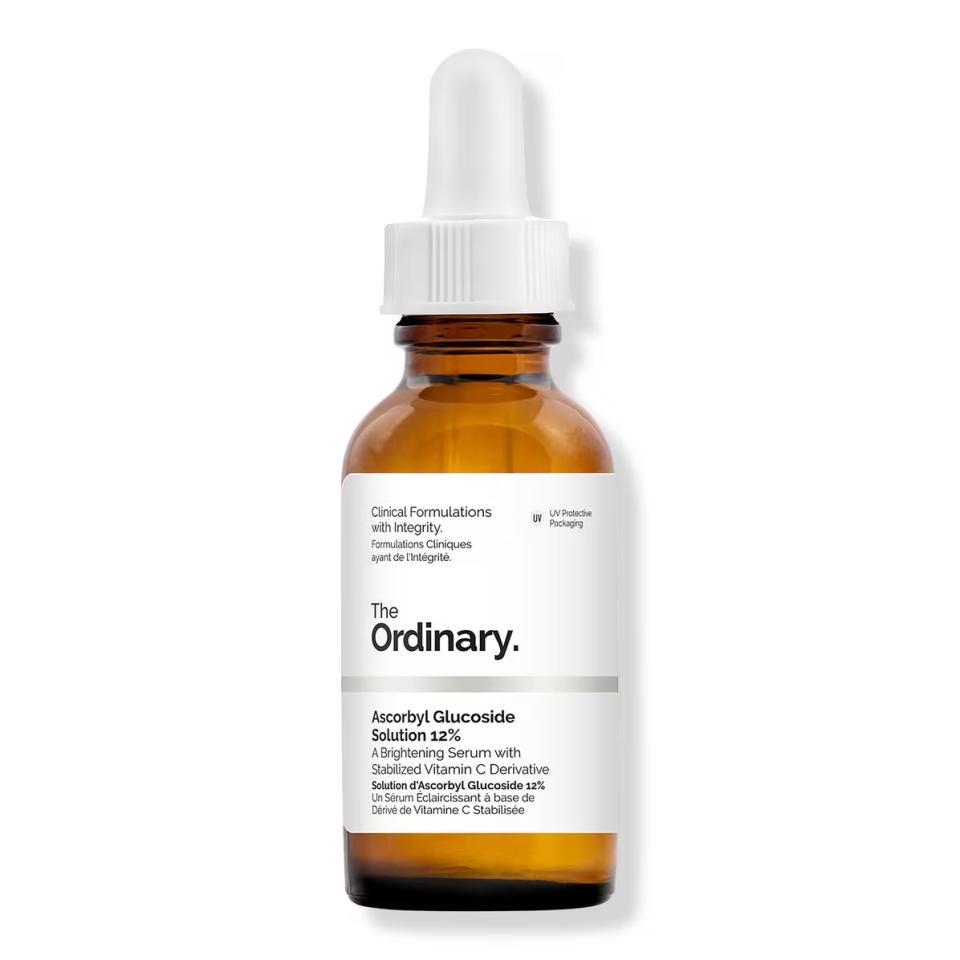
The Ordinary Ascorbyl Glucoside Solution 12% Serum
Bankson recommends this when it comes to vitamin C serums for inflammaging. For just $15, you're getting a powerful brightening serum with a whopping 12% ascorbyl glucoside.
Related: 8 Best Vitamin C Serums for Women Over 50: Brighten Skin, Smooth Wrinkles + More
Best serums for inflammaging
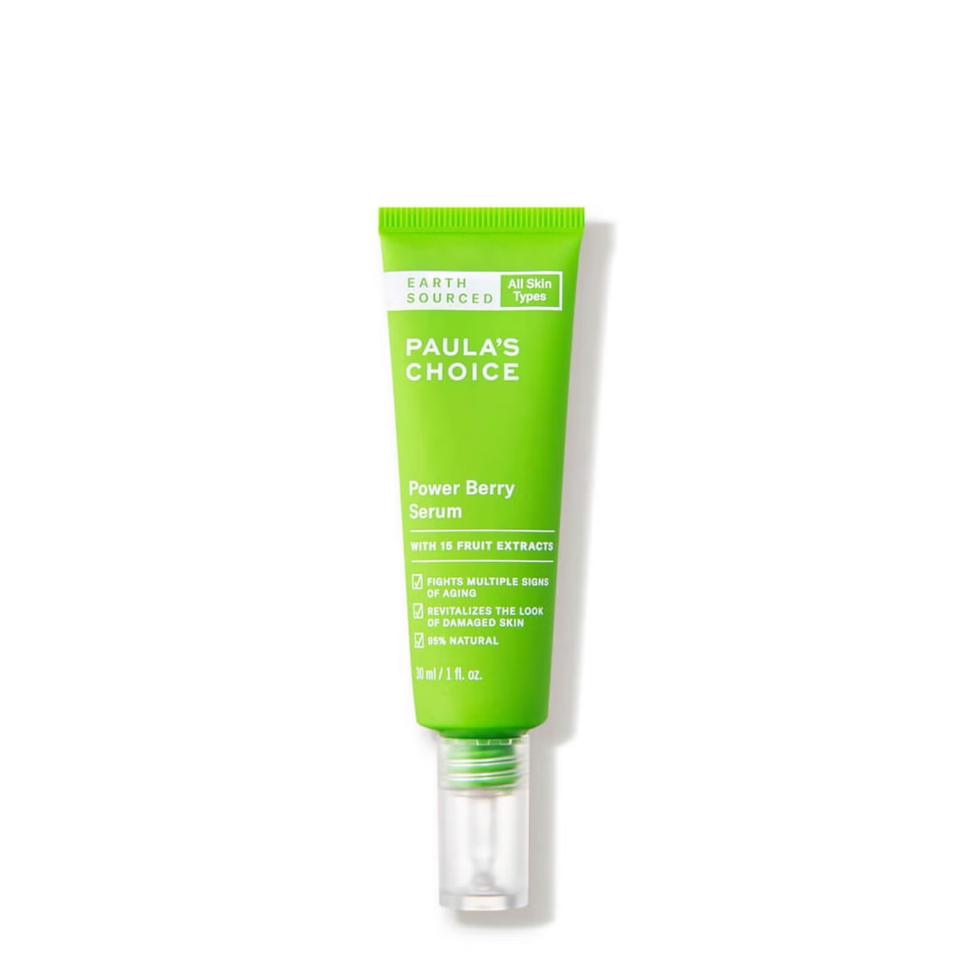
Paula's Choice Power Berry Serum
We now know that berries are packed full of antioxidants, so it makes sense a berry serum would help fight inflammaging. This Paula's Choice serum is made with 13 berries, which helps to "neutralize environmental damage," according to Bankson.
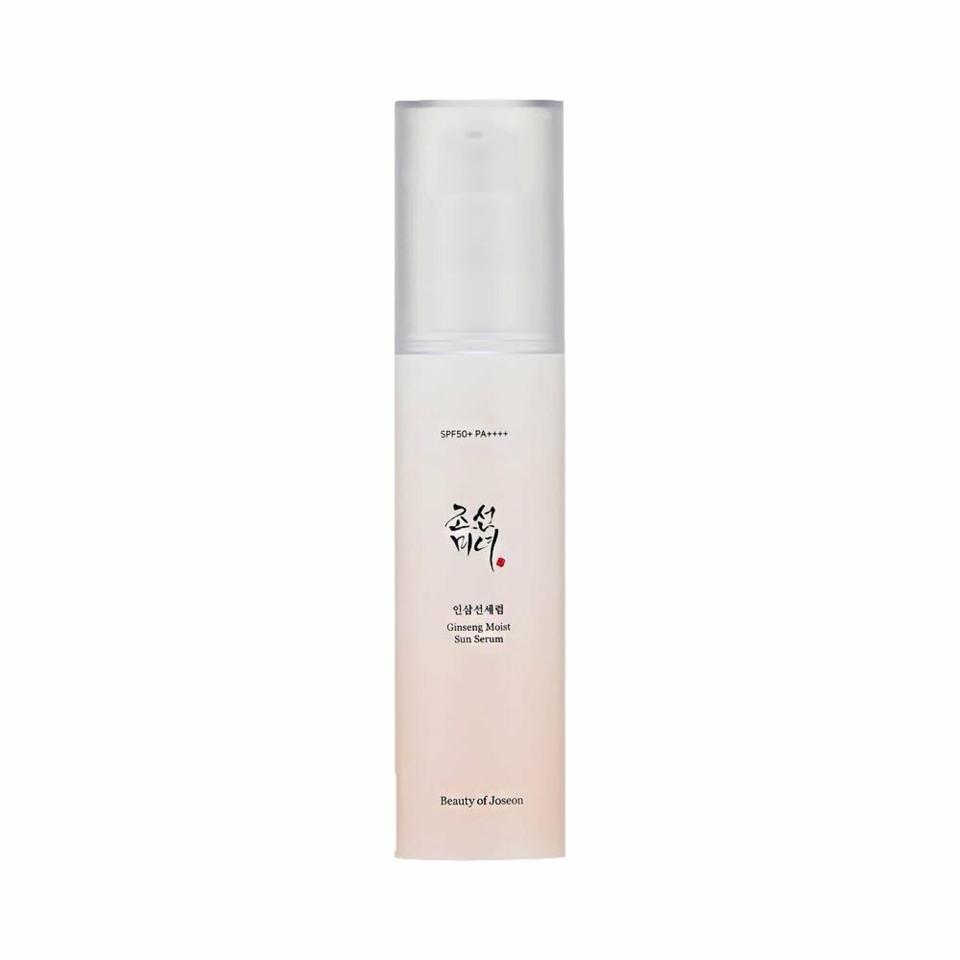
Beauty of Josen Ginseng Moist Sun Serum
Korean beauty is becoming more and more popular, and this serum is one of Bankson's favorites. It not only contains anthocyonins, but it also provides UV protection, which is essential for warding off inflammaging.
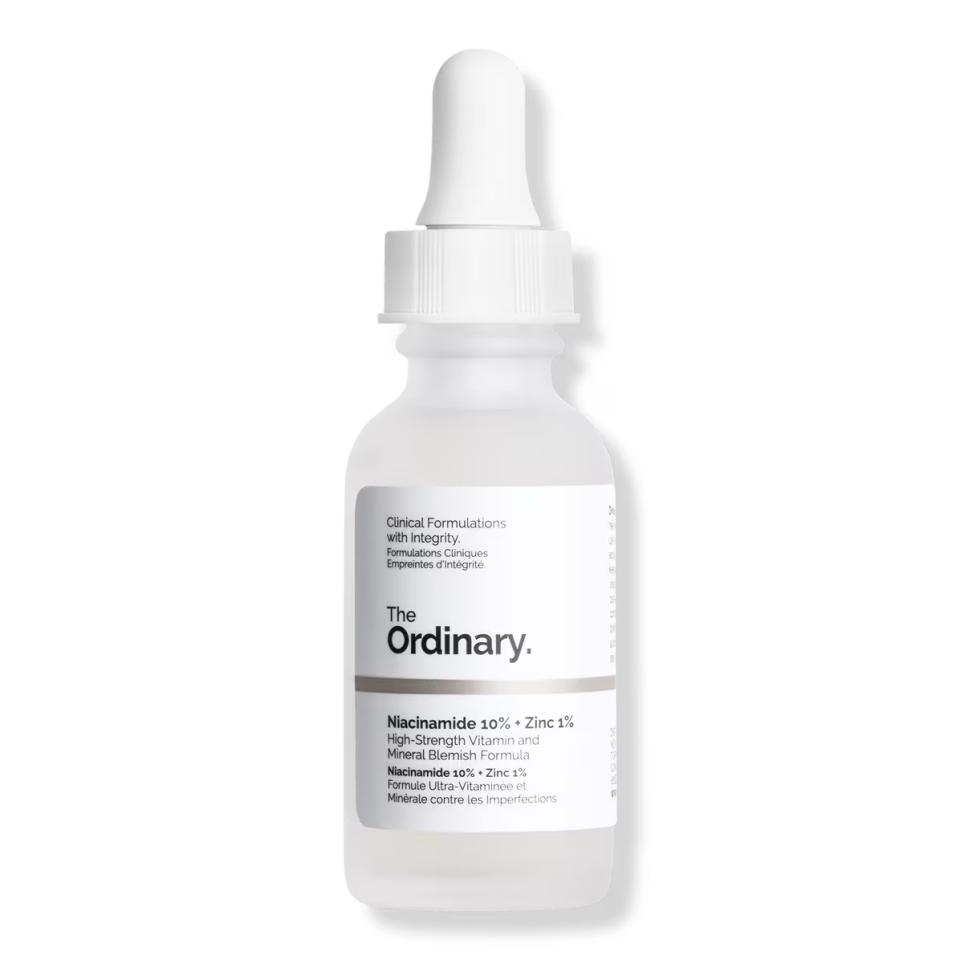
The Ordinary Niacinamide 10% + Zinc 1% Oil Control Serum
Recommended by Dr. Kopelman (and a personal favorite of our's), this niacinamide and zinc formula helps to even out skin tone and blemishes — and costs just $6.
Best SPF for inflammaging
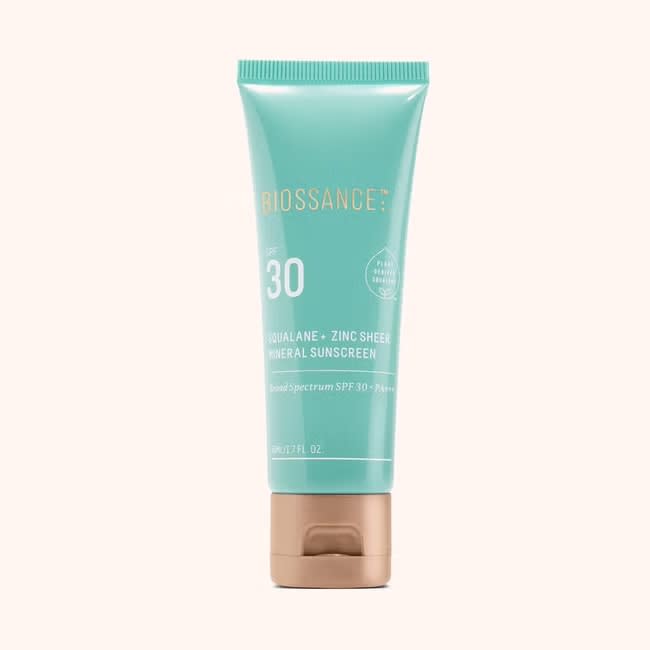
Biossance Squalane + Zinc Sheer Mineral Sunscreen
If you prefer a mineral sunscreen, Bankson recommends this SPF 30 formula, which is "completely mineral but has squalane to help replenish and protect your skin barrier, as well as butterfly ginger from Madagascar to protect from effects of pollution and stress."
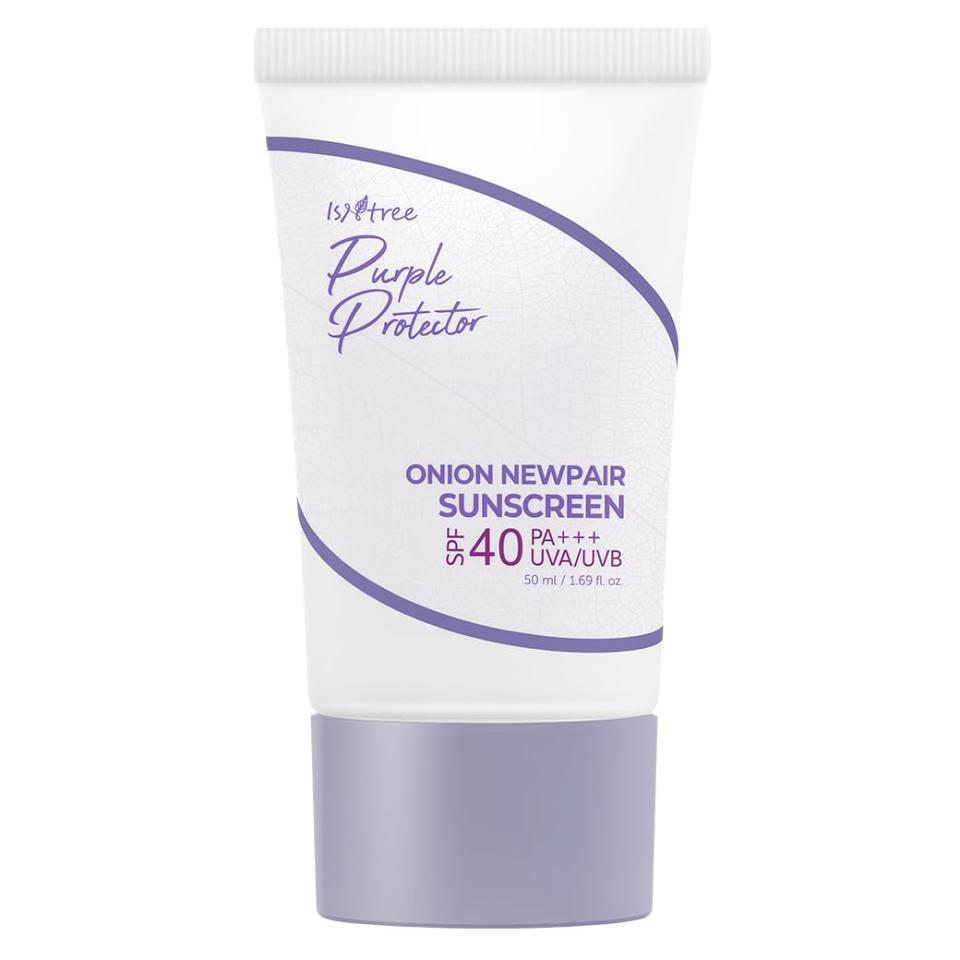
Isntree Purple Protector Onion Newpair Sunscreen SPF 40
Bankson actually had a hand in creating this sunscreen, saying "I helped formulate this and took special care to add red onion and antioxidants to specifically help lower skin inflammation that can contribute to acne breakouts and chronic inflammation in the skin."
Best moisturizers for inflammaging
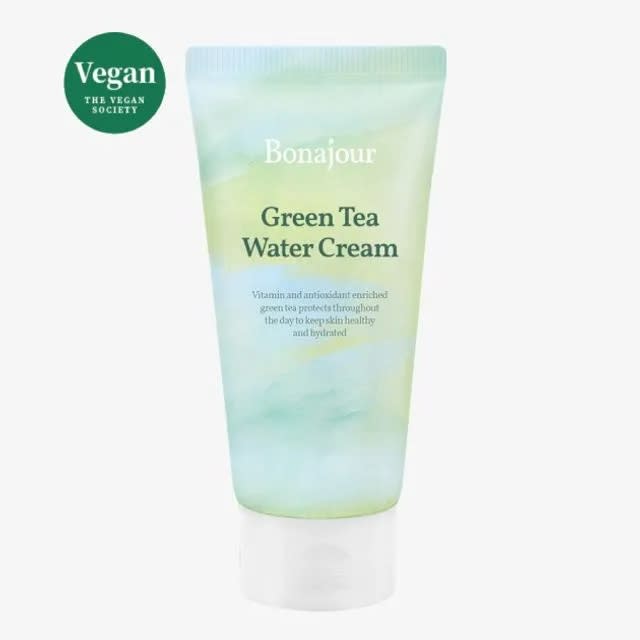
Bonajour Green Tea Water Cream
Another one of Bankson's Korean beauty favorites, this moisturizer has a water-based formula that feels super lightweight and hydrating on, and contains green tea to wards off inflammation.
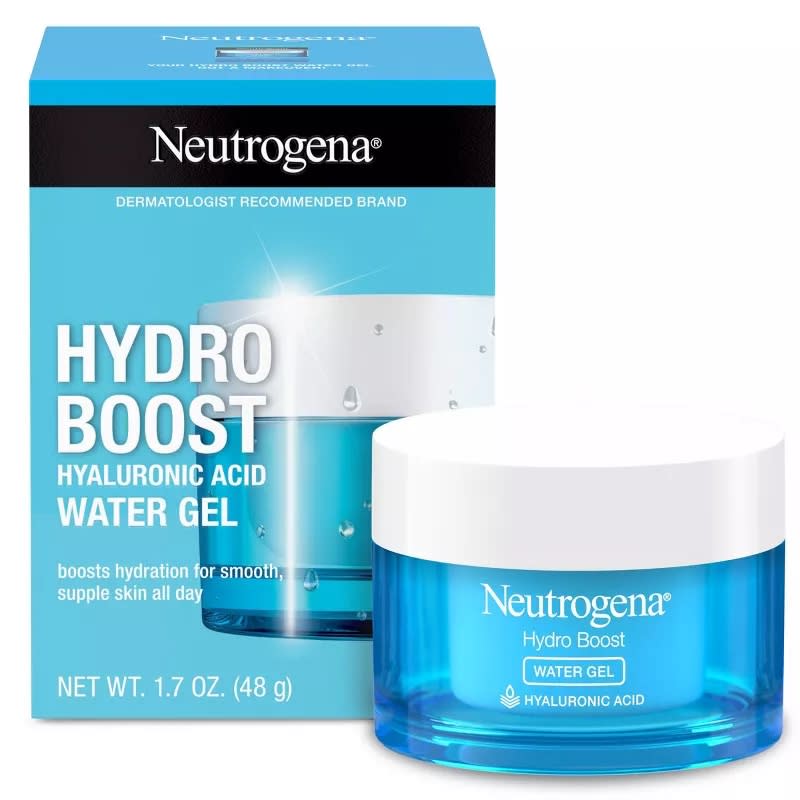
Neutrogena Hydroboost Moisturizer with Hyaluronic Acid
Dr. Kopelman recommends hydrating formulas like this Neutrogena cult-favorite, as they "help keep the skin plump and moisturized."
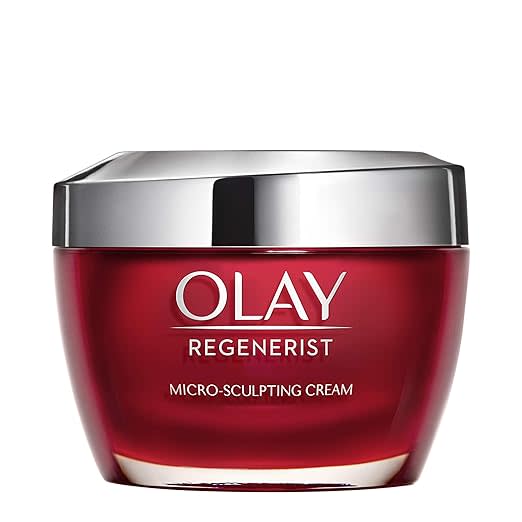
Olay Regenerist Micro-Sculpting Cream Face Moisturizer
As mentioned, peptides are a green flag ingredient to look for in inflammaging beauty products. Dr. Kopelman suggests this cream that is packed full of peptides, as well as hyaluronic acid and niacinamide.
Best retinol for inflammaging
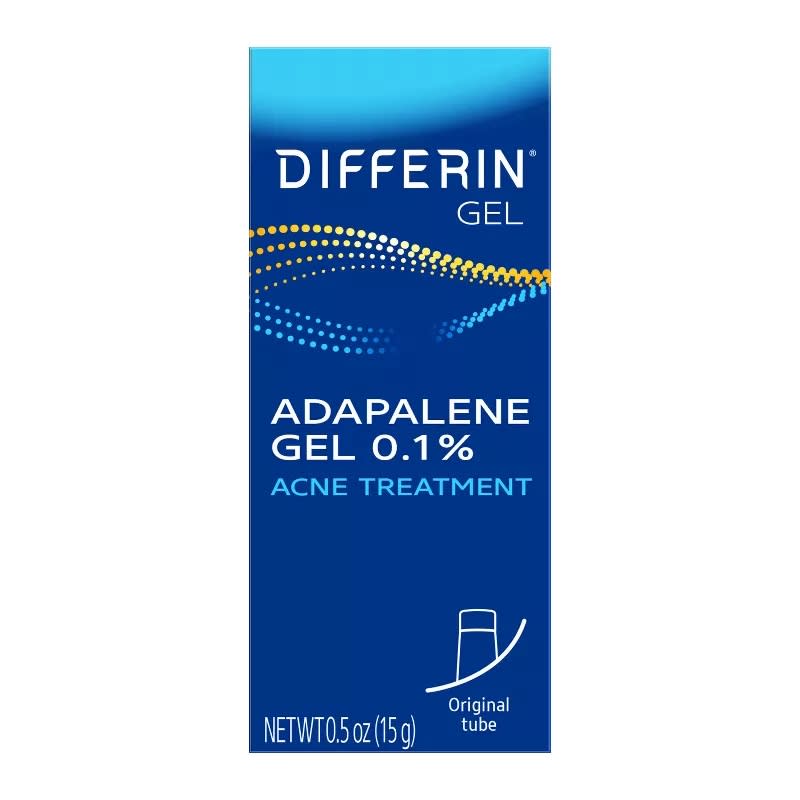
Dealing with adult acne? Dr. Kopelman points to this double-duty treatment. "Retin-A (tretinoin) or over-the-counter options like Differin Gel (adapalene) can help boost collagen production and reduce signs of aging," she says. And it also clears pores of dead skin, excess oil and dirt that can contribute to breakouts.
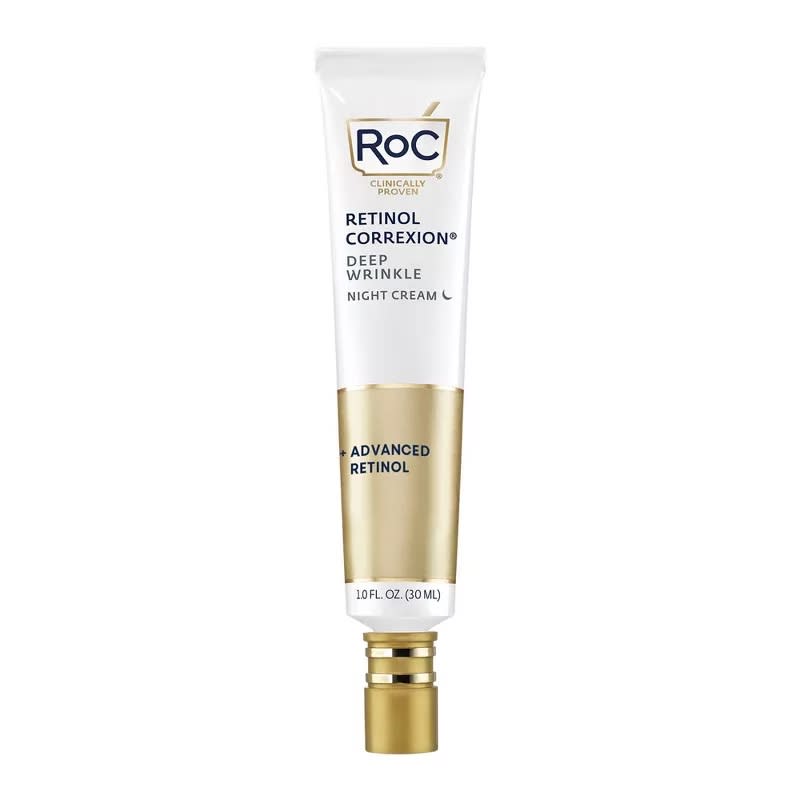
RoC Retinol Anti-Aging + Firming Night Face Moisturizer
This was also mentioned as one Dr. Kopelman's top retinol products for collagen production and extra anti-aging powers.
Best mask for inflammaging
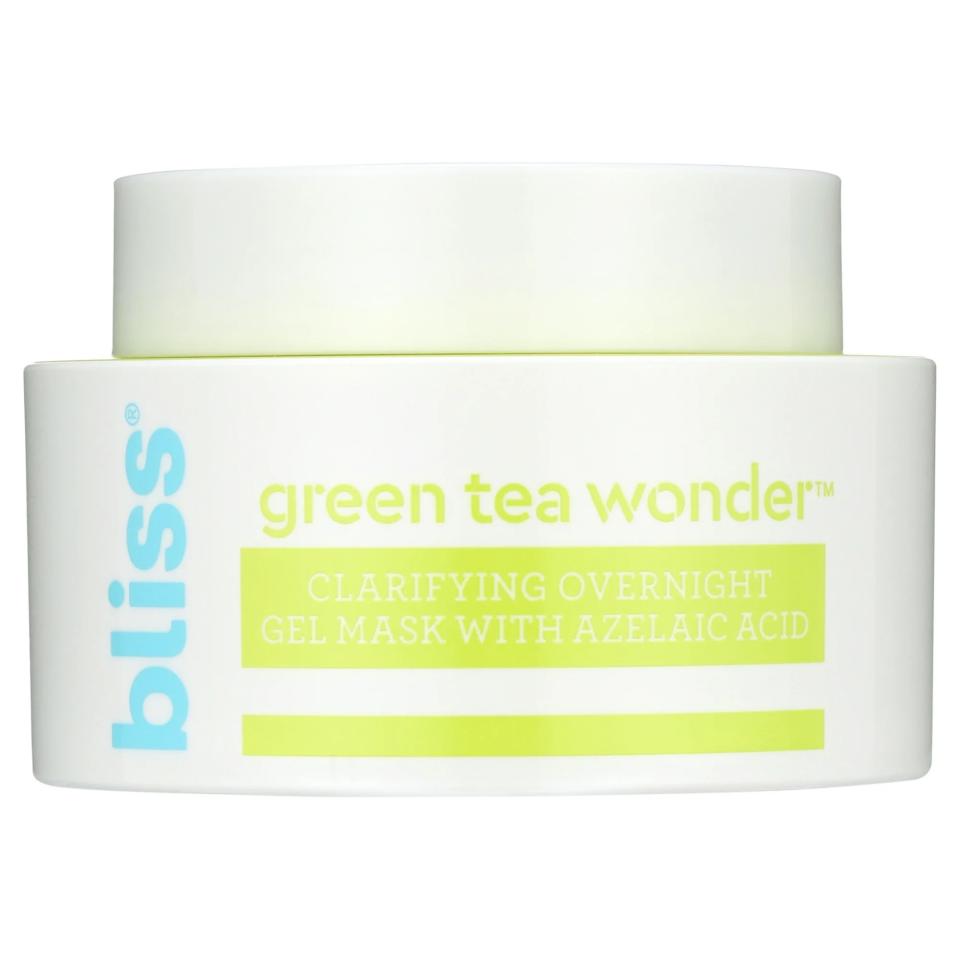
This mask is "excellent for acne and blemish-prone skin prone to redness," suggests Bankson.
For more skincare secrets, click through these stories:
7 Best Neck Creams for Women Over 50, Plus Why Dermatologists Say You Should Use One
7 Best Night Creams for Mature Skin + Why You Should Add One to Your Skin Care Routine
The Best Eye Creams That Fight Puffiness, Dark Circles, Wrinkles and More to Help You Look Younger
